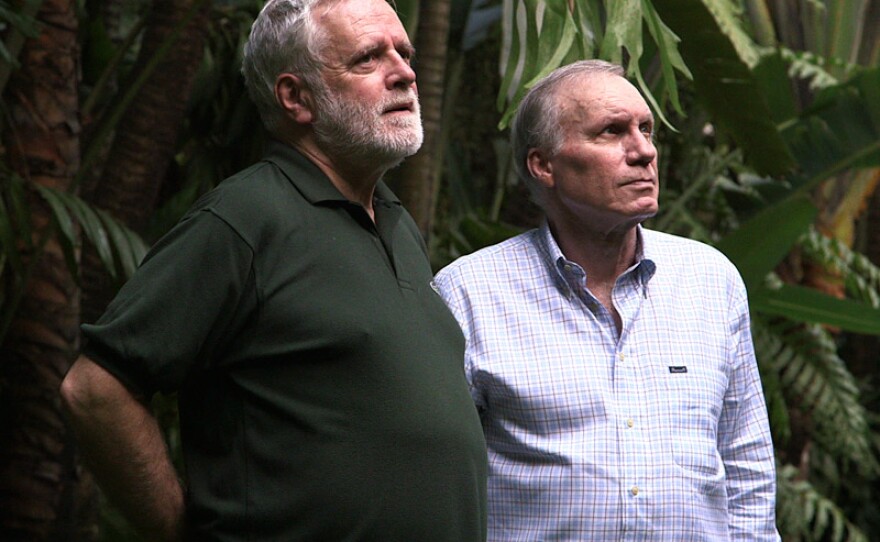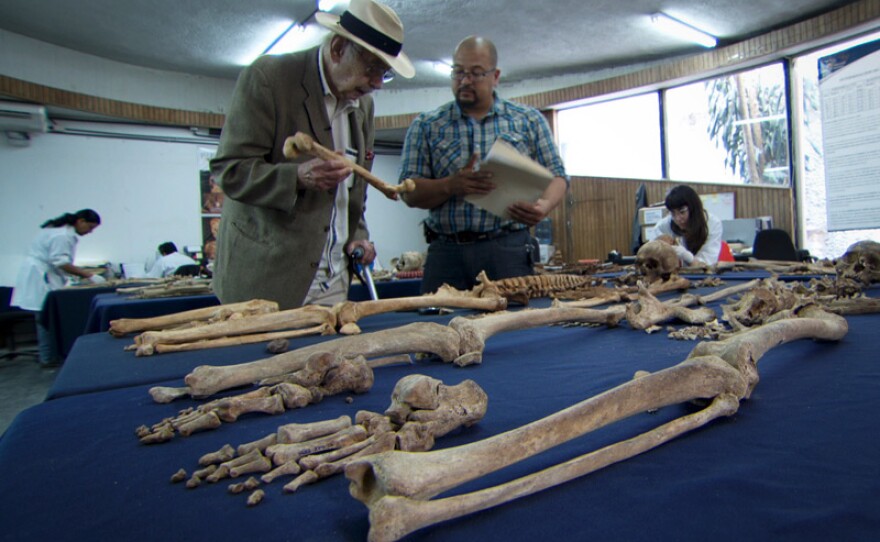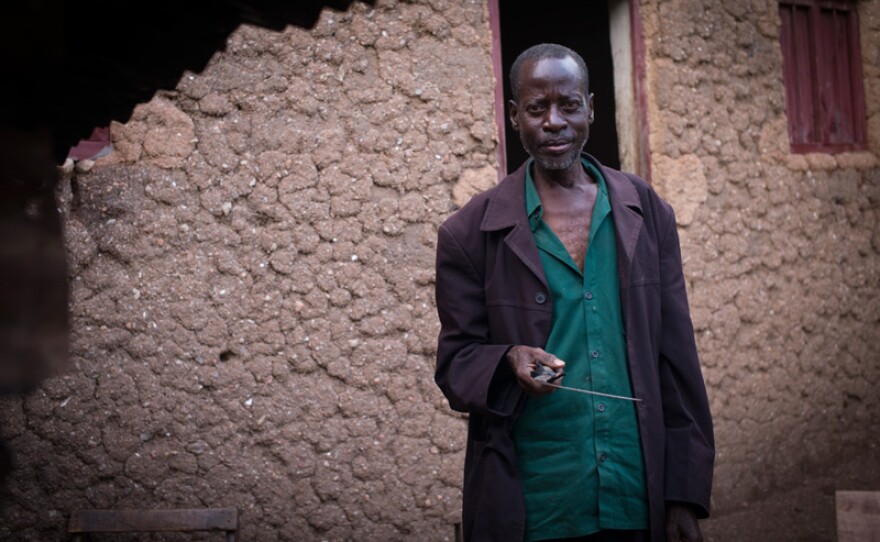Survey the evolution of postwar justice and war crimes investigated over the past 70 years.
Syria. Iraq. Rwanda. Congo. The Balkans. Sri Lanka. Guatemala. Vietnam. Massive war crimes have ravaged our world in the seven decades since World War II. How can — and should — the international community act to bring those responsible for genocide and crimes against humanity to justice?
Ending war seems beyond humankind’s abilities, but significant advances have been made in investigating and prosecuting these international crimes.
A three-hour PBS series, DEAD RECKONING, follows war crimes investigators and prosecutors as they pursue some of the world’s most notorious war criminals — notably Adolf Eichmann, Saddam Hussein, Radovan Karadzic, Charles Taylor, and Efraín Ríos Montt.
The principles, legal doctrines and tactics that emerged from those pursuits now inform the effort to expose, prosecute, and punish present day human rights violators whose depredations have left millions dead and displaced.
It is a tale of daring escapades, political obstruction, broken promises, and triumphs and failures.
Produced, written and directed by Jonathan Silvers, the Emmy Award-winning journalist and filmmaker behind the documentary "Elusive Justice: The Search for Nazi War Criminals," this series serves as a comprehensive sequel to that endeavor.
The film opens with the flight of tens of thousands of Nazi and Japanese war criminals after World War II. The action then shifts to war crimes committed behind the veil of the Cold War, the trial of Guatemalan dictator Efrain Rios Montt, and the establishment of the International Criminal Court and other modern-day tribunals.
The film takes viewers on an unprecedented global journey, recounting the efforts of survivors of mass atrocities, investigators, forensic scientists, and jurists—all working to obtain postwar justice.
DEAD RECKONING reveals that international war crimes tribunals and national courts can provide acknowledgement to survivors of mass atrocities and place future offenders on notice that they, too, can be held accountable.
Also resonating throughout the film is the concept that the enforcement of international humanitarian law and international criminal law is dependent on the political will of states.
Interspersed throughout the film is footage of current excavations and investigations, as well as archival footage.
The documentary also features an array of candid interviews and insights from the world’s leading legal authorities, forensic scientists, medical researchers and foremost human rights workers and international justice experts — including Benjamin Ferencz, U.S. Army prosecutor at Nuremberg, and currently an official at the International Criminal Court (ICC); Allan Ryan, former Chief War Crimes Prosecutor of the U.S. Department of Justice; Eric Stover, Faculty Director of the Human Rights Center at UC Berkeley’s School of Law; pioneering forensic anthropologist, the late Clyde Snow; Naomi Roht-Arriaza, UC Hastings School of Law; journalist Philip Gourevitch; various members of Physicians for Human Rights and more.
EPISODE GUIDE:
Episode 1: “The General's Ghost” repeats Tuesday, June 19 at 11 p.m. - See how laws and mechanisms for international justice are created in the wake of war crimes committed by Nazi Germany and Imperial Japan. General Yamashita's conviction for crimes against civilians establishes a command responsibility doctrine.

Episode 2: “The Blind Eye” repeats Tuesday, June 26 at 11 p.m. - Learn how the Cold War obstructs postwar justice and how atrocities in conflicts with large civilian tolls-such as Vietnam, Afghanistan and Guatemala-are concealed. Individuals make efforts to expose war crimes and identify the perpetrators.

Episode 3: “In Our Time” repeats Tuesday, July 3 at 11 p.m. - See how postwar justice has been revitalized over the past two decades, but is limited in confronting the exponential rise in civilian tolls-sexual violence and genocide-occurring in the Balkans, Rwanda, Congo, Syria, Sri Lanka and other countries.

CREDITS:
Produced, written and directed by Jonathan Silvers. It is produced and edited by Patrick Flynn. Co-producers are Philip Gourevitch, Allan A. Ryan, and Eric Stover. For WNET, Executive Producer is Julie Anderson. A production of Saybrook Productions Ltd. in association with THIRTEEN Productions LLC for WNET.





